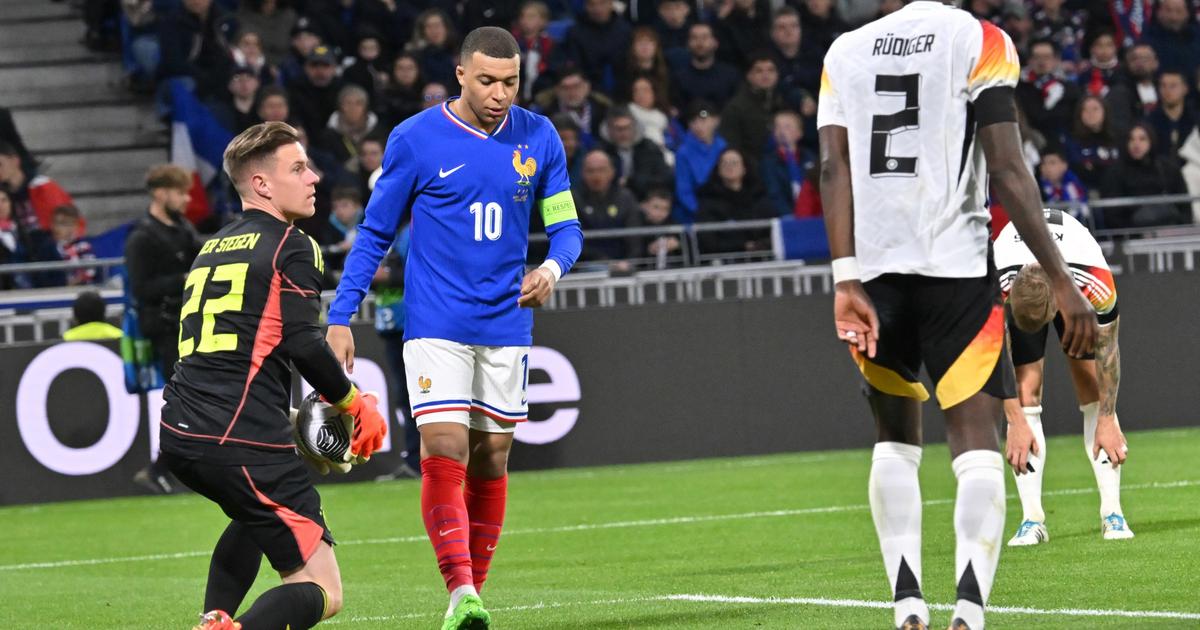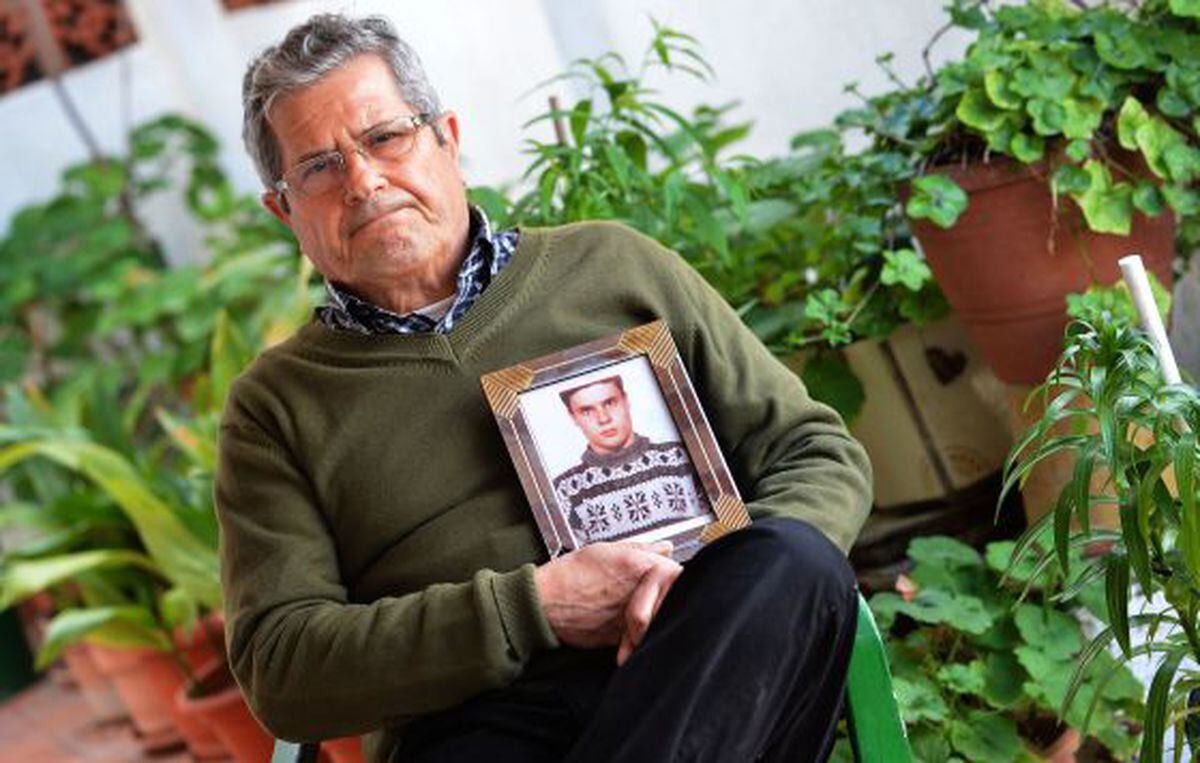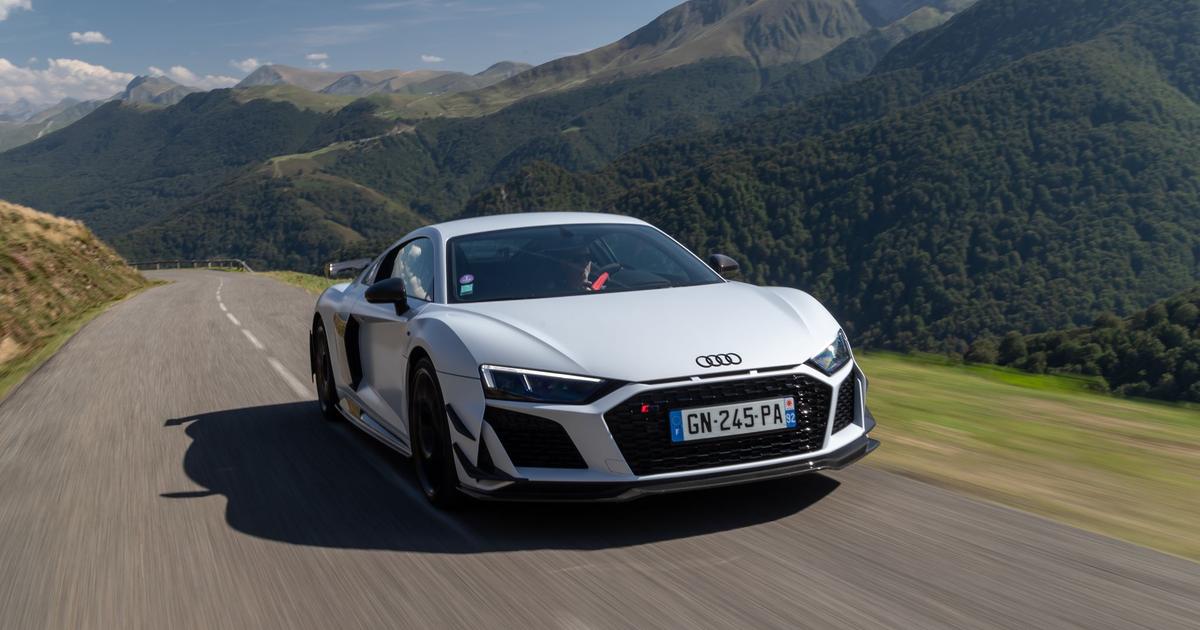Bowing to the "Father of Toompea"
Created: 04/18/2022, 08:00
In addition to the so-called "Cat Column", the cathedral rector at the time, Michael Höck, had his picture taken in the Renaissance courtyard of the Cardinal Döpfner House.
© Archive: Lehmann
In his new film, Sebastian Grießl examines the life of Prelate Michael Höck.
Freising
- Many Freisingers can still remember him vividly - the spiritual authority they affectionately called "Father of Domberg" or just "Papa Höck".
The Freising filmmaker Sebastian Grießl also decided to produce a very special documentary because Michael Höck's work still radiates far beyond the district.
With the extensive film work “Dr.
Michael Höck – his life and work” Grießl delicately and skilfully illuminates the life of the prelate and thus paints a picture of the man who fearlessly opposed National Socialism.
Strong Faith
It was above all his strong faith that allowed Höck, who was born on September 20, 1903, to survive during his imprisonment in the Dachau concentration camp from 1941 to 1945 - an episode in the prelate's life that had previously remained largely unexplored, also because Höck himself spoke about it said little during his lifetime.
As editor of the Munich Catholic church newspaper, Höck repeatedly expressed his clearly noticeable dislike of National Socialism “between the lines”, but also in concrete terms.
The result: From 1935 onwards, individual issues of the church newspaper were repeatedly confiscated by the Gestapo.
After a critical sermon in the Fasanerie in May 1941, which eyewitnesses said had been meticulously written down by a Nazi informer, the unbelievable happened: during religious instruction at a school in Feldmoching, Höck was expelled as an "inciting pastor" just one day after the sermon classroom taken away.
Via the Oranienburg concentration camp near Sachsenhausen, he was taken to Dachau as a special prisoner together with the later auxiliary bishop of Munich Johannes Neuhäusler and the Protestant priest Martin Niemöller.
dark time
Despite some "privileges", such as a common prayer room, this time was a very dark one for the Freising resistance fighter, because even for the special prisoners in the "bunker" it was more than just uncertain that they would ever be able to leave this place alive again.
The light and dark episodes in Höck's life fascinated Grießl so much that a film about the "Father of Domberg" was more than obvious.
And that was also an issue for the filmmaker: Grießl himself got to know and appreciate Höck as a young altar boy from 1958 to 1963 as the pastor of Rimsting (Rosenheim district).
"With him," Grießl recalled, "all the services were simply more solemn - Prelate Höck even made something very special out of a rosary."
But he was also strict at times, which remains unforgettable for Grießl - of course only when the young altar boy hadn't paid attention during the mass.
In order to anticipate whether such a film documentation would be of any interest at all, Grießl sought advice – among others from Auxiliary Bishop Bernhard Hasslberger, who was immediately enthusiastic.
An open character
As director of the Cardinal Döpfner House in Freising, an office that Haßlberger later took over, Höck was also an incredibly open and far-sighted person who, even in old age, was still interested in modern art.
Among other things, Haßlberger learned from Höck how important it is to address confirmation candidates by their first names, for example.
Because, as Höck said, there is hardly anything worse than losing your name and being just a number - as Höck had fared in Dachau.
The "Papa Höck"
"We always just said: Father!", the former Wieskurat Walter Brugger remembered Höck, with whom he had studied at Freising Cathedral in the 1950s.
Brugger describes him as an extremely humorous and loving Regens with a penchant for long speeches and sermons.
Papa Höck was an extremely fatherly and caring person who always took good care of his pupils, as Brugger emphasized.
At the same time, however, Höck was also a sociable and extremely Bavarian clergyman, as Pastor Josef Mundigl recalled from his own student days with Höck – one who even invited the pope of folk music, Kiem Pauli, to the seminary.
(By the way: everything from the region is now also available in our regular Freising newsletter.)
"The 'father' was a good person who showed us the life of a priest," says Mundigl.
But also for Freising itself, for example for the renovation of smaller churches in the area, Höck often campaigned vehemently, as the former district home caretaker Rudolf Goerge reports.
According to Goerge, the exceptional clergyman Höck contributed to the importance of Domberg far beyond Freising, among other things, through his unusually solemn services in the cathedral, including long popular sermons.
Under Höck, according to Goerge, it was not for nothing that the cathedral was always “packed to capacity” during services.
Cinematic perspectives
Grießl's filmic document illuminates Papa Höck's life from a wide variety of perspectives and is thus also a time capsule of memories that might otherwise have been lost unheard.
Grießl worked for two whole years on this film with a running time of 140 minutes, a mammoth project about a clergyman who was many things: soul finder, resistance fighter, comforter - but also one who loved life and lived the faith.
Born in Inzell, he died on May 31, 1996 in Freising - but the memories of him still live very prominently in the hearts of his companions, as this film wonderfully proves.
Good to know
Anyone who sees the film “Dr.
Michael Höck – his life and work” on DVD can obtain the film from the director himself.
Sebastian Grießl's contact details: postal orders to the address Lantbertstraße 1, 85356 Freising.
By phone on (0 81 61) 8 31 95 or by email to sebastian.griessl@googlemail.com The film lasts 140 minutes and costs 19 euros.
Richard Lorenz
You can find more current news from the district of Freising at Merkur.de/Freising.








